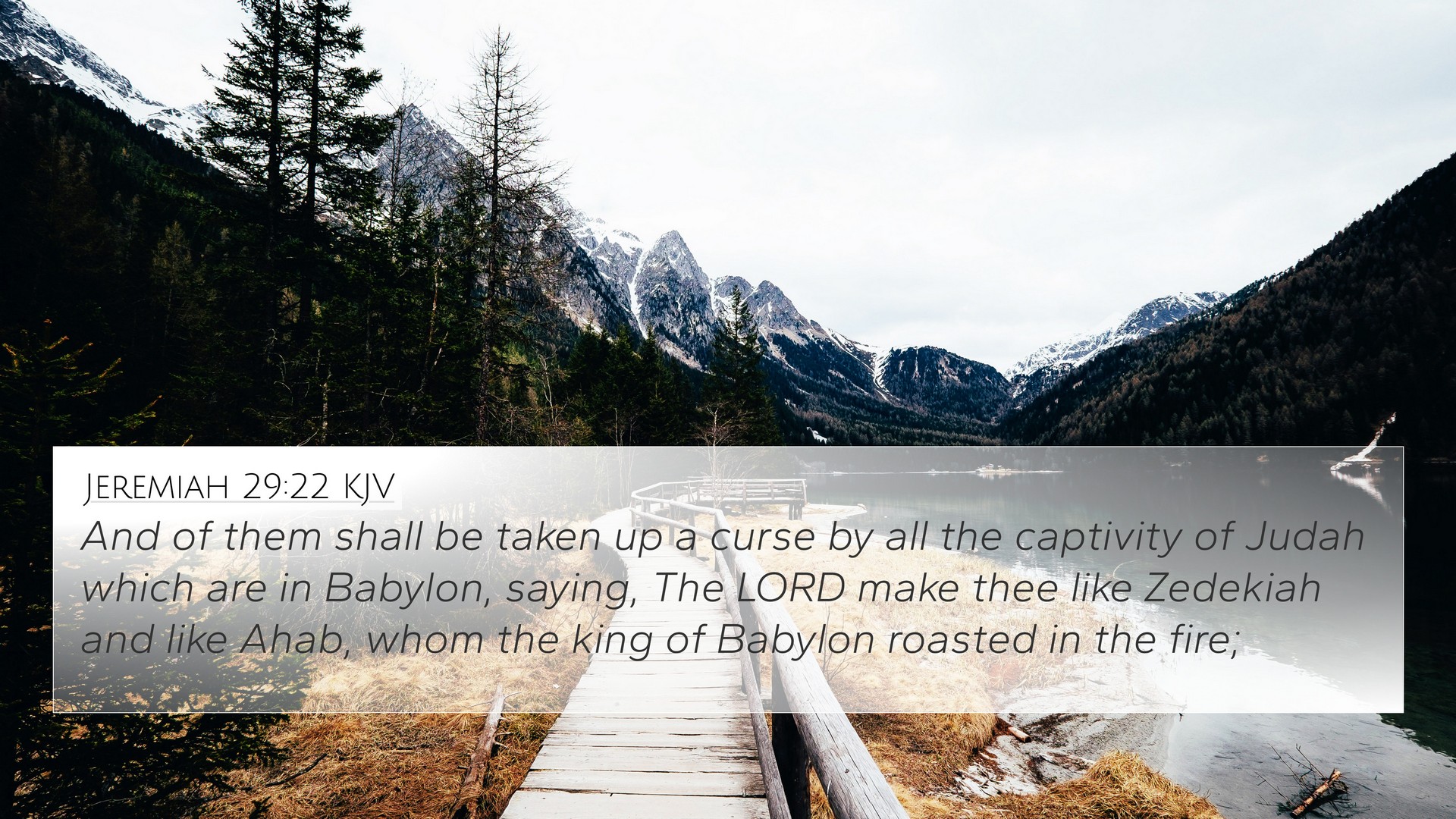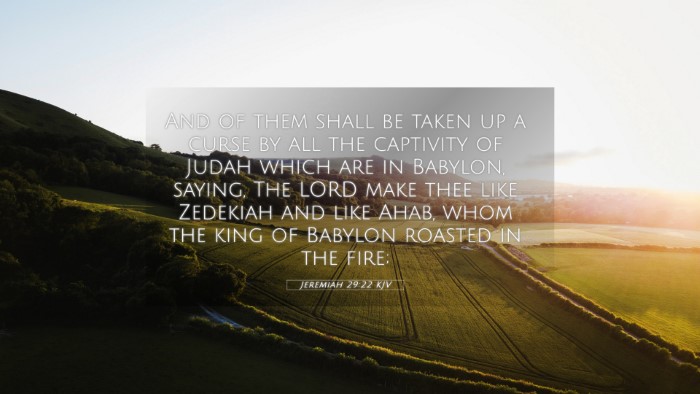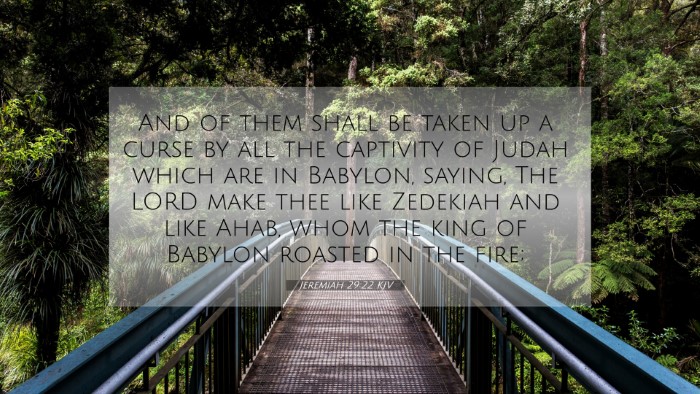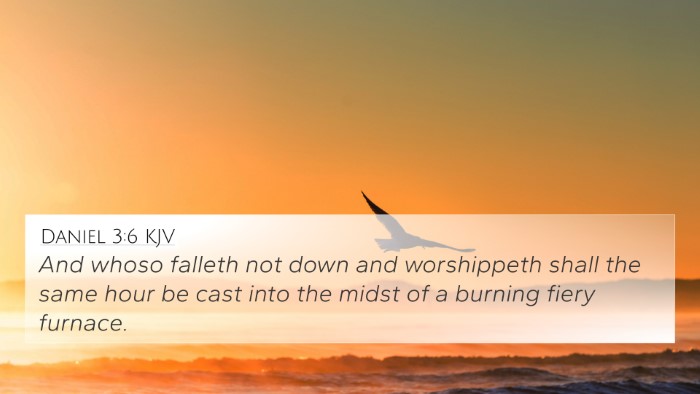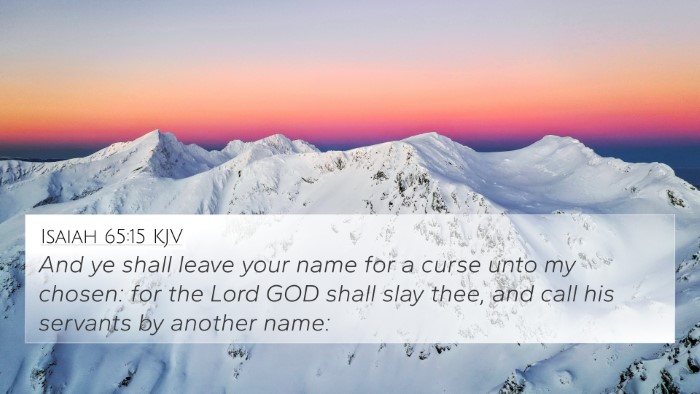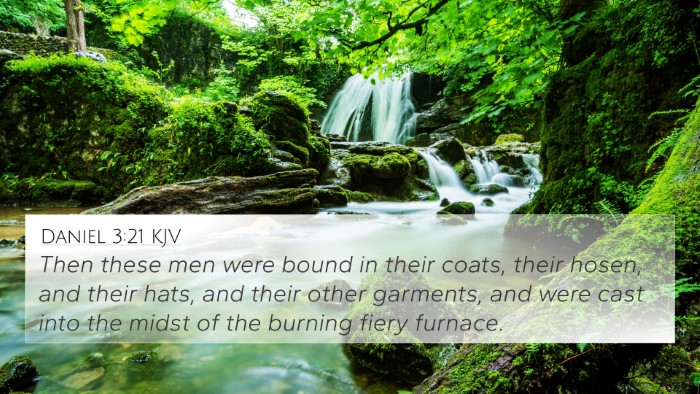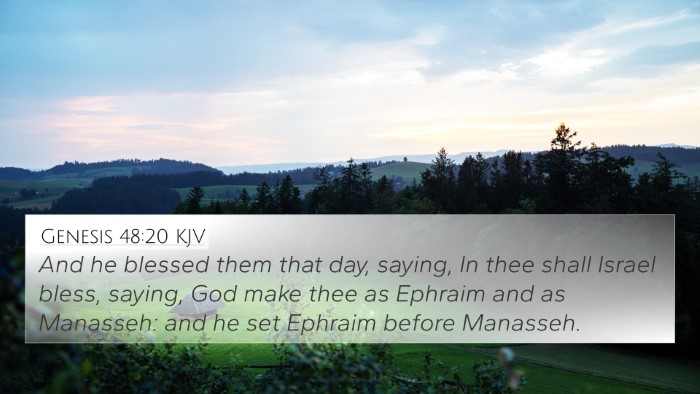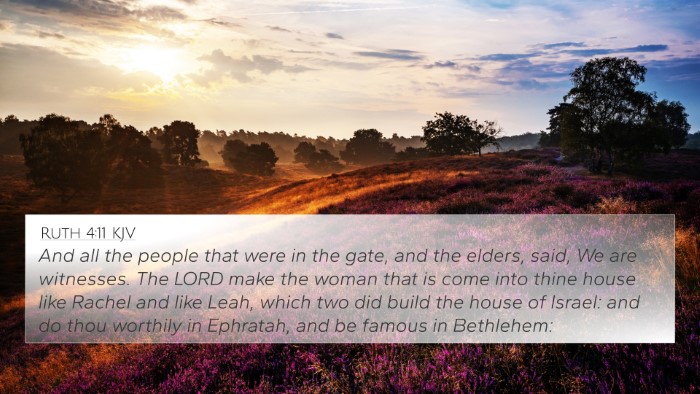Understanding Jeremiah 29:22
Jeremiah 29:22 states: "And of them shall be taken up a curse by all the captivity of Judah which are in Babylon, saying, The Lord make thee like Zedekiah and like Ahab, whom the king of Babylon roasted in the fire." This verse sheds light on the consequences faced by certain individuals during the Babylonian exile and offers profound insights into the nature of divine judgment, the prophetic message, and the consequences of disobedience.
Summary of the Verse Meaning
This verse pertains to the warning given through the prophet Jeremiah regarding the fate of those who were apostate and deceitful among the people of Judah. It reflects the serious consequences of turning away from God, highlighting how these individuals would become a point of reference for curses among those in exile.
Insights from Commentaries
Various key commentaries provide depth to the understanding of this verse:
- Matthew Henry: He emphasizes that the mention of Zedekiah and Ahab serves as a vivid reminder of the judgment faced by those who fiercely opposed God's will. Zedekiah, the last king of Judah, represents disobedience, while Ahab symbolizes wickedness. Both faced severe repercussions, illustrating the moral lessons embedded in their stories.
- Albert Barnes: He discusses how this curse would become a proverbial saying among the exiles, serving as a continuous warning. Barnes notes that the reference to being "like Zedekiah and Ahab" encapsulates the fear and disdain that these figures evoked in the hearts of the people, serving as a stark reminder of the consequences of rebellion against God.
- Adam Clarke: Clarke highlights the significance of the fire mentioned in the context of judgment, portraying a graphic image of divine retribution. He elucidates that this fiery end serves as a paradoxical reminder of how divine wrath was visited upon those who turned away from God’s commands.
Thematic Connections
This verse opens several thematic connections within scripture:
- Divine Judgment: The consequences outlined in Jeremiah 29:22 serve as a stark reminder of God's judgment, echoed in similar themes throughout the Bible (e.g., BibleVerseID:24029019, Proverbs 11:21).
- Exile and Restoration: The context of Babylonian exile can be related to the theme of restoration found in other scriptures (e.g., Isaiah 40:1-2, Ezekiel 36:24-28).
- Prophetic Warnings: The warnings given by Jeremiah connect with other prophetic messages through the Old Testament (e.g., Isaiah 65:11, Ezekiel 22:30).
- Apostasy and Repentance: The call for repentance is a recurring theme seen in verses like 2 Chronicles 7:14 and Joel 2:12-13.
- Comparative Analysis: Cross-referencing between similar prophetic warnings can enhance understanding (BibleVerseID:24029020, Lamentations 3:39).
- Lessons from History: This historical account teaches about the consequences of sin and is reminiscent of New Testament teachings (e.g., Romans 6:23).
- Parables of Loss: The stories of Ahab and Zedekiah resonate with other biblical narratives illustrating loss due to unfaithfulness (e.g., Matthew 25:30).
Notable Cross-References
Here are several other Bible verses that connect to Jeremiah 29:22 through themes of cursing, judgment, and prophetic warnings:
- Jeremiah 29:17: "Thus saith the Lord of hosts; Behold, I will send upon them the sword, the famine, and the pestilence..." emphasizing the forthcoming judgment on a disobedient people.
- Ezekiel 18:30: "Therefore I will judge you, O house of Israel, every one according to his ways, saith the Lord God..." reinforcing the principle of individual accountability.
- Lamentations 3:39: "Wherefore doth a living man complain, a man for the punishment of his sins?" correlating suffering with disobedience.
- Isaiah 33:14: "The sinners in Zion are afraid; fearfulness hath surprised the hypocrites..." drawing parallels between hypocrisy and divine retribution.
- James 1:15: "Then when lust hath conceived, it bringeth forth sin: and sin, when it is finished, bringeth forth death." illustrating the progression toward judgment.
- Matthew 7:13-14: The warning of the narrow way as opposed to destruction connects with themes of choice and consequence.
- Mark 9:43: "And if thy hand offend thee, cut it off..." emphasizes seriousness in avoiding sin, much like the fate of Zedekiah and Ahab.
- Revelation 21:8: "But the fearful, and unbelieving, and the abominable..." provides a finality to the fate of the disobedient.
Tools for Bible Cross-Referencing
Understanding the connections between Bible verses such as Jeremiah 29:22 can be greatly enhanced by utilizing various tools and methods:
- Bible Concordance: A valuable resource for studying words and their occurrences throughout scripture to uncover deeper meanings.
- Bible Cross-Reference Guide: Utilizes a systematic approach to illustrate connections between verses and themes.
- Cross-Reference Bible Study: A methodical study of scripture that reveals relational dynamics within the text.
- Bible Reference Resources: Online databases and printed reference books that provide expansive links between passages.
- Bible Chain References: A technique to show how themes interweave across different books of the Bible.
- Comprehensive Bible Cross-Reference Materials: Various printed and digital materials that aid in connecting scripture for deeper study.
Conclusion
Jeremiah 29:22 serves as a poignant reminder of the consequences of disobedience and the weight of divine judgment. Through exploring this verse along with its cross-references and commentary insights, one can grasp the fuller picture of God's warning and the tragic fates of those who fall away. As readers engage with scripture, they can utilize the multitude of tools available for cross-referencing, thereby enriching their understanding of God’s Word and its interwoven themes.
Emphasizing Connections and Cross-Referencing
Ultimately, understanding Bible verses through a lens of cross-referencing allows for a dynamic exploration of scripture, providing a framework to interpret the Biblical narrative as a cohesive whole. As we connect themes between the Old and New Testaments, we glean wisdom essential for spiritual growth and comprehension of God's ongoing dialogue with humanity.
